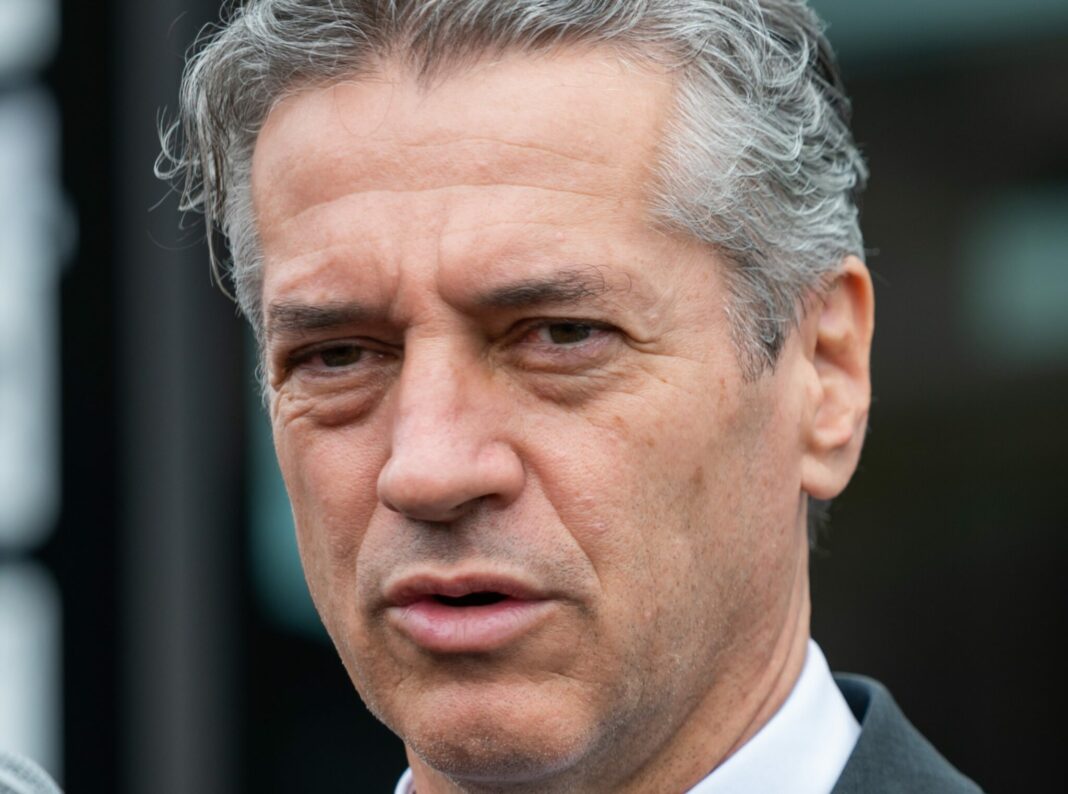By: Ana Horvat (Nova24tv.si)
The draft amendment to the Employment Relationships Act, which includes provisions such as caregiver leave and the possibility of a 30-hour workweek, is once again causing controversy, particularly among employers. Despite Prime Minister Robert Golob’s assertion that respectful communication and seeking broader consensus are of paramount importance to him, the amendment was passed without the involvement of employers in the Economic and Social Council (ESS). This is far from being the only instance of disregarding ESS rules, as employers have pointed out to Golob not long ago.
Employers have addressed a protest letter to the Prime Minister, informing him of the violations of the ESS operating rules and urging him to attend the ESS session. However, the Prime Minister chose to simply apologise for his absence. As a result, employers have decided to boycott the Friday session.
The decision of the Ministry of Labour, Family, Social Affairs, and Equal Opportunities, led by Luka Mesec from the Levica party, to send the draft amendment to the Employment Relationships Act for public consultation before it has been harmonised with social partners, appears entirely unacceptable and unusual to representatives of representative employers’ organisations. In addition to feeling disregarded, they also point out that this constitutes a violation of ESS rules.
The draft amendment to the Employment Relationships Act was sent for public consultation this Monday. Based on its content, employees will be allowed, after six months of employment, to request a change from fixed-term employment to open-ended employment or to a shorter workweek. The promotion of work-life balance is encouraged. “The current regulation of remote work is being supplemented so that it can be implemented through an annex to the employment contract, whereas currently, a new contract must be concluded. In case an employee requests remote work due to the need for work-life balance, the employer will be required to respond and provide reasons for possible refusal,” as reported by STA.
The draft amendment to the Employment Relationships Act also includes the right to disconnect. According to the proposed changes, employers would be required to ensure that employees who exercise their right to rest and justified absence are not available. A five-day unpaid caregiving leave is prescribed for the care of a family member or a person in the same household. In the case of an employee who is a victim of domestic violence, they would have the option to propose a shorter working time. “In the case of arranging protection, legal and other procedures at institutions, and addressing the consequences of domestic violence, the employee is entitled to an additional ten days of paid leave”. However, it is necessary for the employer to be presented with a certificate from the competent social work centre, and the employer should not terminate the employment contract of such an employee. The draft amendment also includes the possibility of a 30-hour workweek, which is opposed by several employers. The directive further limits the number of temporary agency workers and tightens the procedure for regular termination of an employment contract for cause. Mesec had previously announced mandatory Christmas bonuses and an allowance for Saturday work, but these were ultimately not included.
The Chamber of Commerce and Industry of Slovenia, the Chamber of Craft and Small Business of Slovenia, the Chamber of Commerce and Industry of Slovenia, the Employers’ Association of Slovenia, and the Association of Craft and Entrepreneurship Employers of Slovenia have highlighted that they were informed about the ministry’s intention, which they consider one-sided, through the media. They accused the Ministry of Labour of violating the fundamental rules of ESS functioning and the agreement on the principles of the ESS negotiating group, as the negotiating group appointed on the basis of an ESS decision has not yet concluded negotiations.
This is not social dialogue
In their press release, the employers emphasised that they were disregarded and placed in an entirely unequal position. The assurances and agreements surrounding the negotiations, made by Mesec, were ultimately violated. “Therefore, we strongly oppose such actions that prevent social dialogue, the search for compromises, and the achievement of broad consensus on proposed legislative solutions,” they emphasised. They also addressed the criticism regarding the obstruction of the Friday session of the ESS, where the draft amendment to employment relationships could have been discussed. They consider the criticism misleading and reminded that they had previously pointed out the “(non)attendance of members and deputy representatives of the government and the handling and adoption of legislative proposals in the government and the National Assembly completely bypassing the ESS. They expected Prime Minister Robert Golob to attend the Friday session”. As they say, they provided him with the opportunity to propose the date for the next session, but there has been no sign of it so far.
There is also dissatisfaction within the trade union centres
They are critical of the proposal for the Long-Term Care Act, as the government submitted it under an urgent procedure, which means that it was not discussed at the ESS and official negotiations were not concluded, involving a special group within the ESS. “This is not social dialogue. The ESS cannot function in the manner we have witnessed in recent weeks and months, and we do not accept the way the employers’ organisations operate,” they state clearly. The trade union centres that participate in the work of the ESS are also clearly dissatisfied with the situation. They have announced a press conference to clarify their expectations regarding legislative proposals and the field of managing social dialogue.
It appears that there is no room for social dialogue in the government of Robert Golob, even though they accused their political opponents of the same. It is not surprising that this issue is not problematised, as it is known that the mainstream media have played a role in establishing “freedom” in the country. There will not be any protests on the streets, of course, but if the government were different, everything would be different, truly everything.

